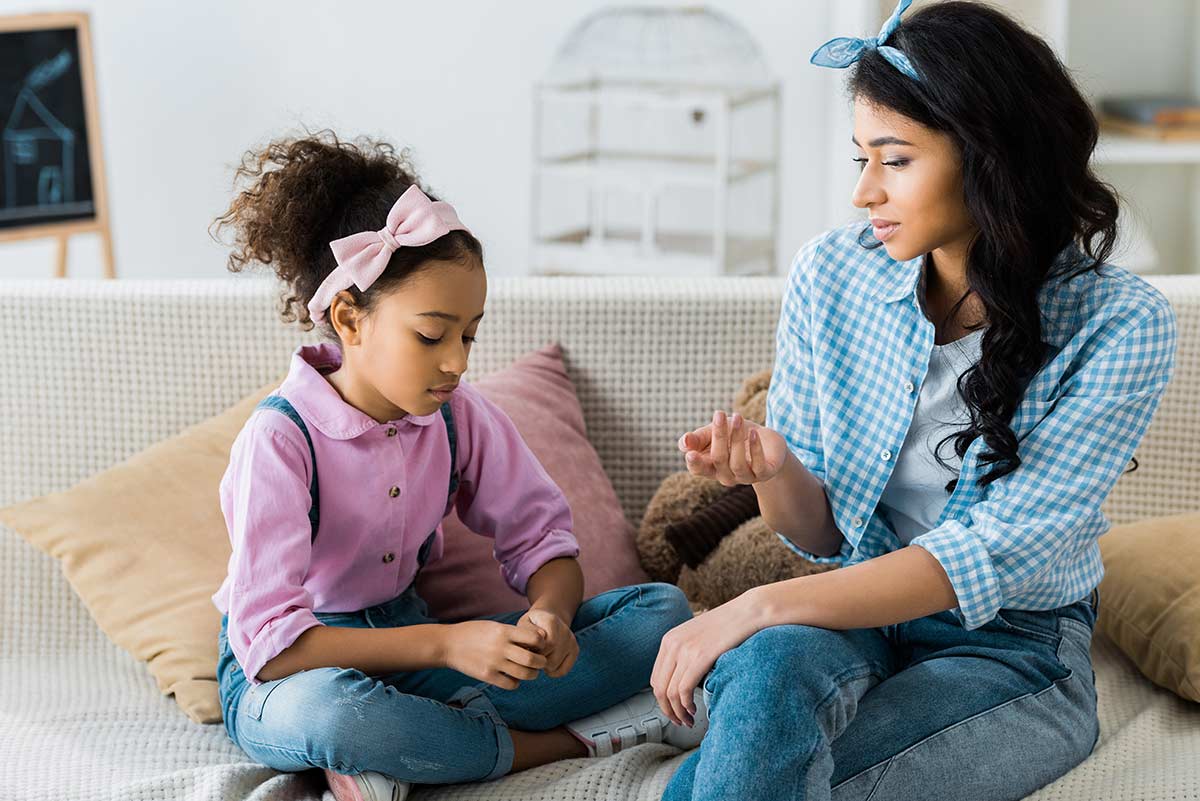Talking To Your Child When Another Child Has Cancer
Most kids are familiar with cancer. They might have a grandparent who has dealt with cancer, a friend of their parents, or an aunt or uncle. Children almost always associate a cancer diagnosis with someone who is an adult.
What happens when one of your child’s peers or friends gets sick? How do you talk to your child about cancer when it affects someone their own age? How much do you know about childhood cancer, and what should you share?
There are excellent resources for parents to use as guides for talking to kids of all ages about cancer. The advice might vary a bit depending on whether the person sick is a sibling, parent, friend, or your own child. You can ask your child’s doctor or a local cancer center for help finding the information that can be most useful for your situation.
Our hope at Rock the Treatment is that you never have to have this conversation with your child. But, if a young person in your child’s life receives a cancer diagnosis, here are some basics to consider when discussing the situation with your child.
How To Speak To Your Child About Their Friend With Childhood Cancer
When one of their peers has cancer, your child will ask you questions. They might express fear, sadness, and confusion over the fact that a young person like them could be so sick with what they perceived to be a “grown-up disease.” The conversations about cancer you have with your child might be difficult for both of you.
There are no rules to these conversations, only suggestions to consider that might ease some of the heightened emotions that your child might feel upon learning a friend has cancer.
Consider the following:
- Be sure to speak to your child using language they understand. For example, you probably don’t need to get into all of the scientific details of the diagnosis.
- Be honest and as direct as possible when you answer questions, so they are less confused by your responses. It is ok to say “I don’t really know” or “I don’t have that information at this time.”
- Don’t share more information than they are asking for. Children have an innate knack for asking questions that have answers they are ready to handle. Listen carefully to what they are asking you. Like a witness in a trial, answer the question—no need to elaborate. Your child will likely ask more questions if they are unsatisfied with your answers or ready for additional information.
Addressing The Causes Of Childhood Cancer
Unlike some adult cancers, child cancers are not the result of anything related to one’s lifestyle or behavior. They do not develop because of any action or inaction by children or anyone else. Cancer in children is not caused by a paper cut, a minor bump on the head, bad behavior at school, or eating a hot dog.
Talking About Survival
It is essential to remind your child that child cancers have excellent survival rates and that chances are, their friend will be ok. Obviously, this conversation will depend on the condition of the patient and their confirmed diagnosis. But until it is necessary to say otherwise, try reassuring your child that even though cancer can be fatal, their friend has a good chance of recovering.
Answering The Question Most Children Ask: “Will I get cancer from them?”
Most children are pretty self-centered. How self-centered they are, varies with age. However, most kids at any age will worry about whether they will “catch” cancer from their friend, even if they don’t verbalize their concern.
Assure your child that cancer is not contagious. It can’t be passed from person to person. There is no reason to be afraid of someone with cancer.
Children with cancer must often be isolated, but that is for their own protection from common childhood illnesses, not for the safety of others. If your child is permitted to visit their friend in the hospital or at home, encourage them to do so.
Your Child Should Expect Some Changes in Their Friend
Maintaining a friendship with a child with cancer can be a challenge for a young person. They might be too tired to hang out, feel sick after treatments, or be out of school for chunks of time. They might experience physical changes, too, like hair loss or the loss of a limb. These changes can make it harder for young friends to stay connected, but being prepared can help.
Encourage your child to focus on what has not changed and find ways to stay in touch with their friend. Perhaps your child can deliver homemade cards to their hospital room or set up some video “playtime” together.
Call Rock The Treatment To Send Healthy Cancer Gift Baskets To A Child With Cancer
If your child has a friend or classmate with cancer, consider sending a children’s cancer gift basket from Rock the Treatment. At Rock the Treatment, we make it easy to let someone with cancer know you care and support them on their difficult journey. If someone you love has cancer, send a helpful cancer gift basket from Rock The Treatment. Chemotherapy and radiation gift baskets are packed with the essentials needed to ease side effects of treatment, as well as enhance physical and mental well-being. See all of our cancer care packages and find the one that best supports their journey.

